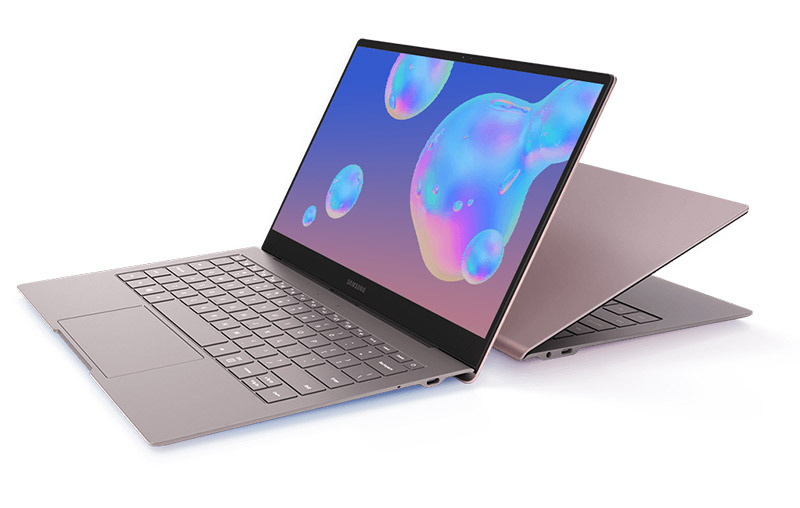Samsung at its Unpacked event on Wednesday unveiled the Galaxy Book S, an addition to the company's Galaxy Book line that features an ARM-based Qualcomm Snapdragon processor for longer battery life.
Announced alongside Samsung's latest flagship phablets, the Galaxy Note 10 and 10+, the portable runs Windows 10 and packs a 13.3-inch display with support for ten points of multitouch input, cellular connectivity, 8GB of RAM, up to 512GB of internal storage and other standard features into a chassis weighing in at just over two pounds.
Like 2018's Galaxy Book2, Samsung opted to power Galaxy Book S with an efficient ARM-based chip. Designed for desktop applications, Qualcomm's Snapdragon 8cx is a 7-nanometer, 64-bit, eight-core chip that boasts a clock speed of 2.84GHz. As noted by The Verge, Samsung is promising 40 percent greater CPU performance and 80 percent greater graphics performance than the Snapdragon 850 mobile platform in the Galaxy Book2.
Whether the diminutive thin-and-light can deliver those numbers has yet to be seen, though past efforts to incorporate an ARM chip into a daily duty Windows laptop have been largely unsuccessful. Intel's silicon, sometimes knocked for a lack of power efficiency, are for the most part more adept at running a full-fledged operating system.
That said, ARM enables extraordinarily long run times, with Samsung claiming the 42Wh battery in Galaxy Book S can go up to 23 hours between charges. The measurement is based on playback of a locally stored video without connection to either Wi-Fi or mobile network, meaning real-world use will likely see a significant decrease in actual uptime.
Samsung also touts instant-on capabilities that immediately wake the computer with a touch of the power button, fingerprint sensor, keyboard or mousepad.
Galaxy Book S debuts in September starting at $999.
Apple, too, is rumored to move its MacBook laptop line away from Intel in favor of custom A-series ARM chips as soon as 2020. The transition is expected to take years, with low-power, entry-level Macs likely gaining access before more powerful machines like the MacBook Pro.
 AppleInsider Staff
AppleInsider Staff







-m.jpg)






 Charles Martin
Charles Martin
 Christine McKee
Christine McKee
 Wesley Hilliard
Wesley Hilliard
 Malcolm Owen
Malcolm Owen
 Andrew Orr
Andrew Orr
 William Gallagher
William Gallagher
 Sponsored Content
Sponsored Content








22 Comments
The Samsung Galaxy Book 2 was carried (sold) through Verizon at 41.66/month for 24 months. The Galaxy Book S will probably be similar...
Will the MacBook Pro or Air ever get LTE? Maybe a 12” MacBook (A Series) LTE in 2020?
AI should kick the tires on the Samsung Book S as a college machine. Colleges seem to prefer Windows for engineering majors, and Macs for Arts... Will a Windows on ARM even run the software? Or, is this a hobbled Windows machine that will run little more than Microsoft Office?
Can’t innovate my ass.
Small quibble with the article's title. I think there should be an asterisk associated with that 23 hr battery claim. I really think the 23 hr claim shouldn't even be mentioned in the title, but that's just me. It's a bit of theater by Samsung to promote battery life by looping a locally stored video. As stated in the article, no wifi or celluar use. Not really a basis to honestly claim 23 hrs.
Otherwise, I'm excited to see what improvements have been made for x86 on ARM. If this thing garners good reviews and turns out to be viable, I might just pick one up around May 2020 when they will have likely depreciated by 40-50%